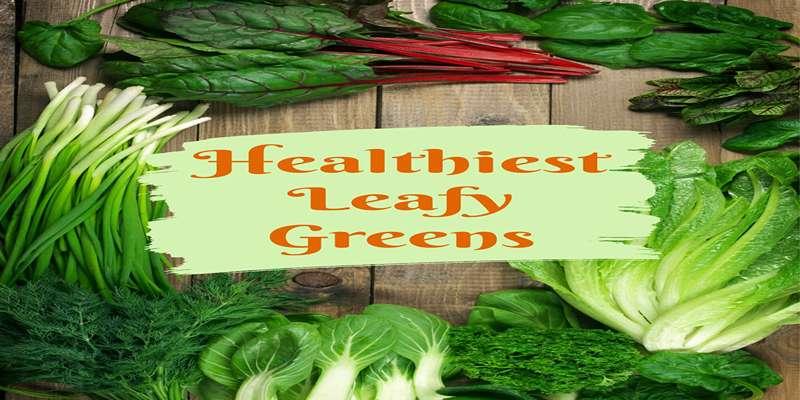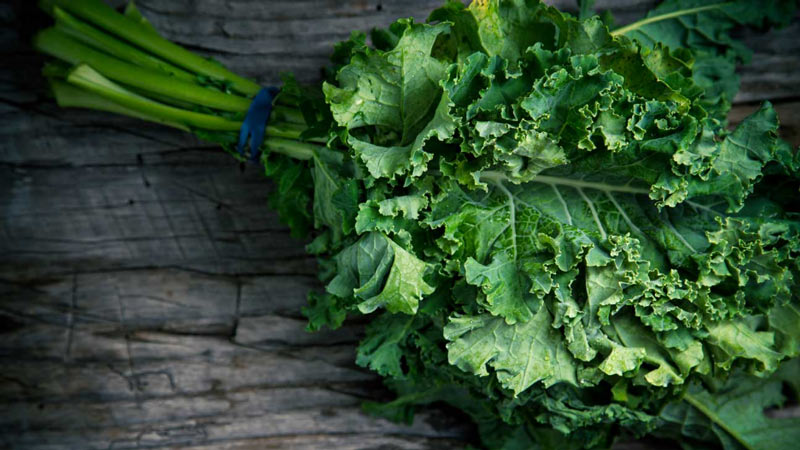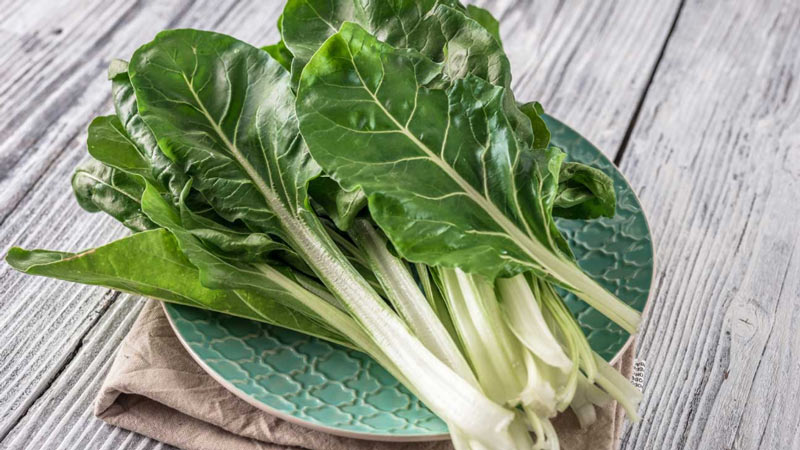Are you looking for ways to add more nutritious leafy green vegetables to your diet? Leafy greens are incredibly nutritious and can provide various health benefits, from improved digestion to reduced risk of certain chronic diseases.
In this blog post, we'll tell you about some of the healthiest leafy green vegetables to incorporate into your diet - so you can enjoy healthier eating with delicious ingredients! Keep reading to learn more about what makes these leafy greens such healthy superfoods for every meal.
Introducing Leafy Green Vegetables
Leafy green vegetables are among the most nutritious foods on the planet, offering various health benefits that can help you maintain a healthy lifestyle. These superfoods are packed with essential vitamins, minerals, fiber, and antioxidants – all while being low in calories.
There are so many delicious leafy green vegetables, from kale to spinach, chard to romaine. Whether you're looking for a simple side dish or an easy way to add nutrition to your meals, incorporating more leafy greens into your diet can be incredibly beneficial.
Let’s explore some of the healthiest leafy green vegetables to add to your diet today.
1 Kale:
This dark, leafy green is often hailed as one of the healthiest foods. Kale is incredibly high in vitamins A, C, and K and is also a great source of fiber and antioxidants like carotenoids.
It has anti-inflammatory properties and can help reduce the risk of chronic diseases such as cancer, heart disease, and diabetes.
Kale is also an excellent source of calcium and iron, making it a great choice for vegetarians or those looking to increase their intake of these important minerals.
2 Spinach:
This nutrient-dense vegetable contains minerals, including magnesium, potassium, iron, and vitamins A, C, E, K, and B-complex vitamins. Furthermore, rich in fiber and antioxidants like lutein, spinach can help shield your eyes from deterioration brought on by aging.
It's also a great source of plant-based protein – making it an excellent choice for vegetarians or those looking for higher protein content.
3 Chard:
This leafy green vegetable contains vitamins A, C, K, and E and essential minerals like potassium and magnesium. Chard is also high in carotenoids and antioxidants that can help reduce inflammation and protect your cells from damage. It also contains anti-cancer compounds that may help reduce the risk of certain cancers.
4 Romaine:
Romaine lettuce is a great source of fiber and vitamins A, C, K, and B6. It's also high in antioxidants like lutein and zeaxanthin, which can help protect your eyes from age-related damage. Romaine is also a great source of folate, which can help reduce the risk of congenital disabilities and other health issues.
5 Collard Greens:
Collard greens contain vitamins A, C, and K and calcium, iron, and magnesium. They're also packed with antioxidants like beta-carotene, lutein, and zeaxanthin that can help protect your cells from damage. Plus, collard greens are an excellent source of fiber – so they can help keep you feeling full for longer.
6 Mustard Greens:
Mustard greens contain vitamins A, C, K, folate, and calcium. They're also a great source of antioxidants and plant-based compounds that can help reduce inflammation and protect your cells from damage. Plus, they contain compounds called glucosinolates that may help reduce the risk of certain cancers.
7 Arugula:
Arugula is a nutrient-rich leafy green vegetable high in vitamins A and C and folate, calcium, and iron. It's also packed with antioxidants like beta-carotene and lutein that can help protect your cells from damage. Plus, it contains compounds called glucosinolates that may help reduce the risk of certain cancers.
8 Bok Choy:
Bok choy is high in vitamins A, C, and K and essential minerals like calcium and magnesium. It's also a great source of antioxidants like beta-carotene that can help protect your cells from damage. Plus, bok choy contains glucosinolates that may help reduce the risk of certain cancers.
9 Swiss Chard:
Swiss chard is a nutrient-dense leafy green loaded with critical minerals like calcium and magnesium and vitamins A, C, and K. Moreover, it has a lot of antioxidants like lutein, which might help shield your cells from harm. Moreover, it includes glucosinolates that may help lower the risk of a few malignancies.
Health Benefits of Eating Leafy Greens Daily
1. Improved Digestion:
Leafy greens are fiber-rich, which helps keep your digestive system running smoothly and prevents constipation.
2. Reduced Risk of Chronic Diseases:
Eating a diet rich in leafy greens may help reduce your risk of certain chronic diseases, such as cancer, heart disease, and diabetes.
3. Increased Nutrient Intake:
Leafy greens are an excellent source of essential vitamins and minerals to help keep your body functioning optimally.
4. Improved Immune System:
Eating a diet rich in leafy greens may help boost your immune system and reduce the risk of infection.
5. Weight Loss:
Leafy greens are low in calories but high in fiber, making them a great choice for those looking to lose weight.
Adding more of these healthy leafy greens into your diet allows you to enjoy the many health benefits they provide. So why not give them a try today? You may find that you love the taste as well!
FAQs
Q: What are the healthiest leafy green vegetables to incorporate into my diet?
A: The healthiest leafy greens to incorporate into your diet are kale, spinach, Swiss chard, collard greens, and arugula. All these vegetables are incredibly nutrient-dense, full of antioxidants like vitamins A and C and minerals like calcium and iron. They also contain high amounts of fiber, which can help keep you full for longer and aid digestion. These leafy greens are filled with phytochemicals and other beneficial compounds that can boost your overall health.
Q: What makes leafy green vegetables so nutritious?
A: Leafy green vegetables are incredibly nutritious because they contain essential vitamins and minerals. They also contain various beneficial compounds, such as antioxidants, phytochemicals, and fiber. All these nutrients help boost your overall health by providing energy, promoting healthy digestion, and fighting off disease-causing radicals. Additionally, leafy green vegetables are low in calories and fat, making them a great addition to any healthy diet.
Q: How do I incorporate leafy green vegetables into my diet?
A: Incorporating leafy green vegetables into your diet can be easy and delicious! Try adding kale or spinach to salads for extra crunch and flavor. Blending your favorite greens into smoothies is another easy way to get your daily dose of nutrients. You can also use leafy greens as a base for stir-fries, soups, pasta, or sandwiches. There are many creative ways to make these nutritious vegetables part of your healthy diet!
Conclusion
Leafy green vegetables are some of the healthiest and most nutrient-dense foods you can add. They’re low in calories and fat but packed with essential vitamins, minerals, antioxidants, phytochemicals, and fiber, providing numerous health benefits. Incorporating them into your diet is easy and delicious, so why not add some leafy greens to your meals today?






